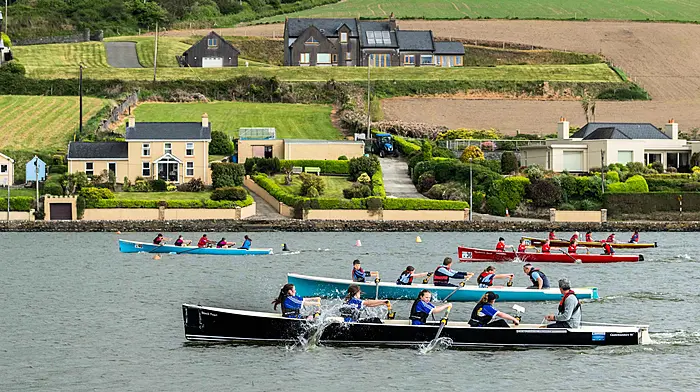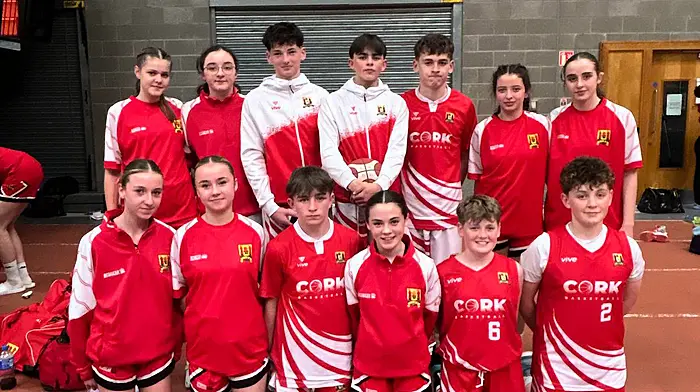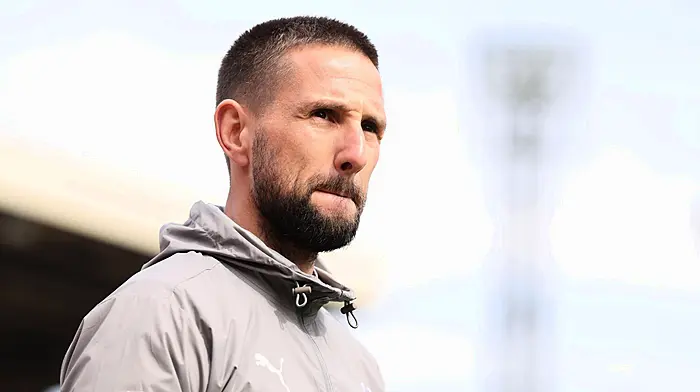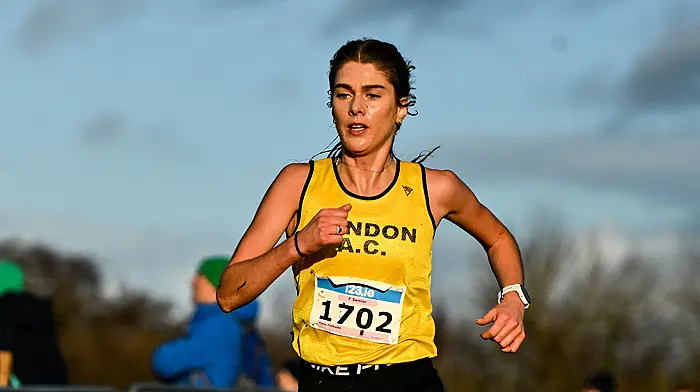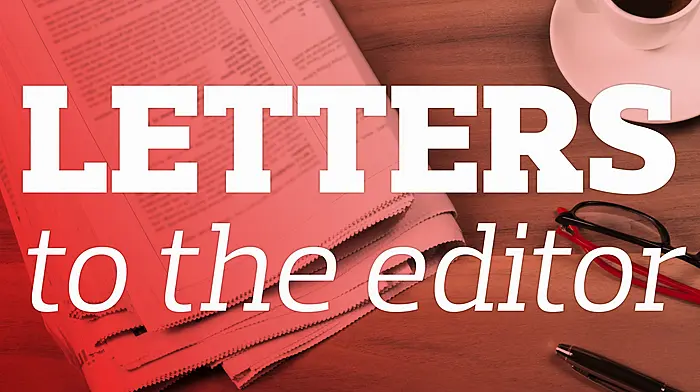It’s 16 years since Eugene Coakley rowed for Ireland at the 2004 Olympics in Athens. After qualifying for the Games in ’03 the Irish lightweight four were rated as medal hopes, but it all unravelled in 2004. KIERAN McCARTHY caught up with the Skibbereen man to see if time has healed old wounds
**********
LET’S not overstate this because Eugene Coakley doesn’t lie awake at night, haunted by what-if thoughts around the 2004 Olympic Games, but at the same time he has one question that he wants an answer for.
The only man that can answer Coakley is his former national coach Thor Nilsen.
‘I want to ask him straight out if he thinks he got it wrong when he took Timmy (Harnedy) out of the boat and replaced him with Niall O’Toole,’ Coakley says.
The Skibbereen man has reached out to Nilsen before and got no reply. Coakley will try again. He’s adamant the Norwegian rowing guru slipped up and that the Irish lightweight men’s four that was sent to Athens would have been better if Harnedy had kept his place.
‘If Timmy was in the boat, hand on heart I think we would have won a bronze in ’04,’ Coakley says.
Back then, Ireland had never won an Olympic rowing medal. Twelve years later Gary and Paul O’Donovan smashed through that glass ceiling to win silver at the Rio Olympics. Coakley is adamant that the Irish four with Harnedy had the potential to be in the medal conversation, but the Irish boat without Harnedy crawled home in last place in the A final of the lightweight four at the Athens Olympics.
There were broken bodies and shattered dreams – but the truth is they never showed any signs during the Games that they could win Ireland’s first-ever rowing medal at an Olympics.
‘The Danes were always going to win gold because they were the dominant crew,’ Coakley points out.
‘We came sixth at the World Championships in 2003 when we were a new crew. Fast forward one year to 2004, we were more established and we certainly should have progressed – but the fact that we stayed in the same position showed that we didn’t progress with Niall O’Toole in the boat, as opposed to Timmy.’
This Greek tragedy was in the making since the previous winter of 2003. It played out over ten months, and the final act on the Athens stage was a particularly hard watch.
***
Eugene Coakley reckons that the 2003 Irish lightweight four of Kerryman Paul Griffin, Coleraine rower Richard Archibald, Skibb man Timmy Harnedy and himself was one of the best crews he’s ever raced in.
At the World Championships that year in Milan, they finished sixth overall and qualified for the Olympics. The feeling was they were just scratching at the surface of their potential.
‘That boat had this raw attitude from all four of us, every stroke counted so you better make sure you dug a big hole in the water every time,’ Coakley explains.
They didn’t fire in that World final. They had won their A/B semi-final but they underperformed in the A final. Still, Coakley, then 24-years-old, saw it as progress. After solid seasons at U23 level in 2000 and ’01, the following year was terrible and he was close to walking away from rowing. The gap from U23 to senior was too big, he felt. But in 2003 he was in a World A final alongside the legendary Danish crew.
‘I remember Timmy saying at the time that we were robbed of a medal but I personally took away from it that we were now on the world stage and that it was going to be the start of a great couple of years,’ Coakley recalls.
The silver lining to Milan was Olympic qualification. The last time an Irish lightweight four competed at the Games was at the 1996 Olympics. There were new kids on the block now – Griffin (23), Archibald (25), Harnedy (21) and Coakley (24).
‘After the race the four of us went for drinks and, even though we were down after the result, we chatted in great length that this was going to be the four which was going to win or at least medal at the Olympics next year,’ Coakley recalls.
It was a bit like the Beatles, he muses. There were four of them and they felt no-one else was going to come in and offer anything that could add to this Irish four.
Their coach, Thor Nilsen, had different ideas though.
The four buried themselves in training that winter. They went to Seville two weeks earlier than an organised three-week camp. It was a brutal five weeks of blood, sweat, pain and vomit, but they emerged that January in the best shape of their lives.
At the FISA Team Cup in Seville that month, the Irish four romped to victory. Nilsen even quipped, ‘boys, you are going too fast’, but they were eager to stretch their legs and road-test their gears.
‘It’s not a massive event but you had Spanish, Great British and Dutch crews there so it was a chance for us to gauge our speed. It’s a sprint so it was only 1,000 metres on the Saturday and 500 metres on the Sunday. On the Saturday we did a 2:51 for 1,000 metres which, for January, is a phenomenal time. We had over a length to spare on the Dutch who had taken a silver at the Worlds in Milan in ’03,’ Coakley recalls.
They were eight months out from Athens and it was looking good – but this four’s downfall had already begun. Harnedy’s weight was an issue the previous winter, he almost hit 80 kilogrammes when the crew average needed to be 70kg. The general feeling is that this sowed seeds of doubt in Nilsen’s mind.
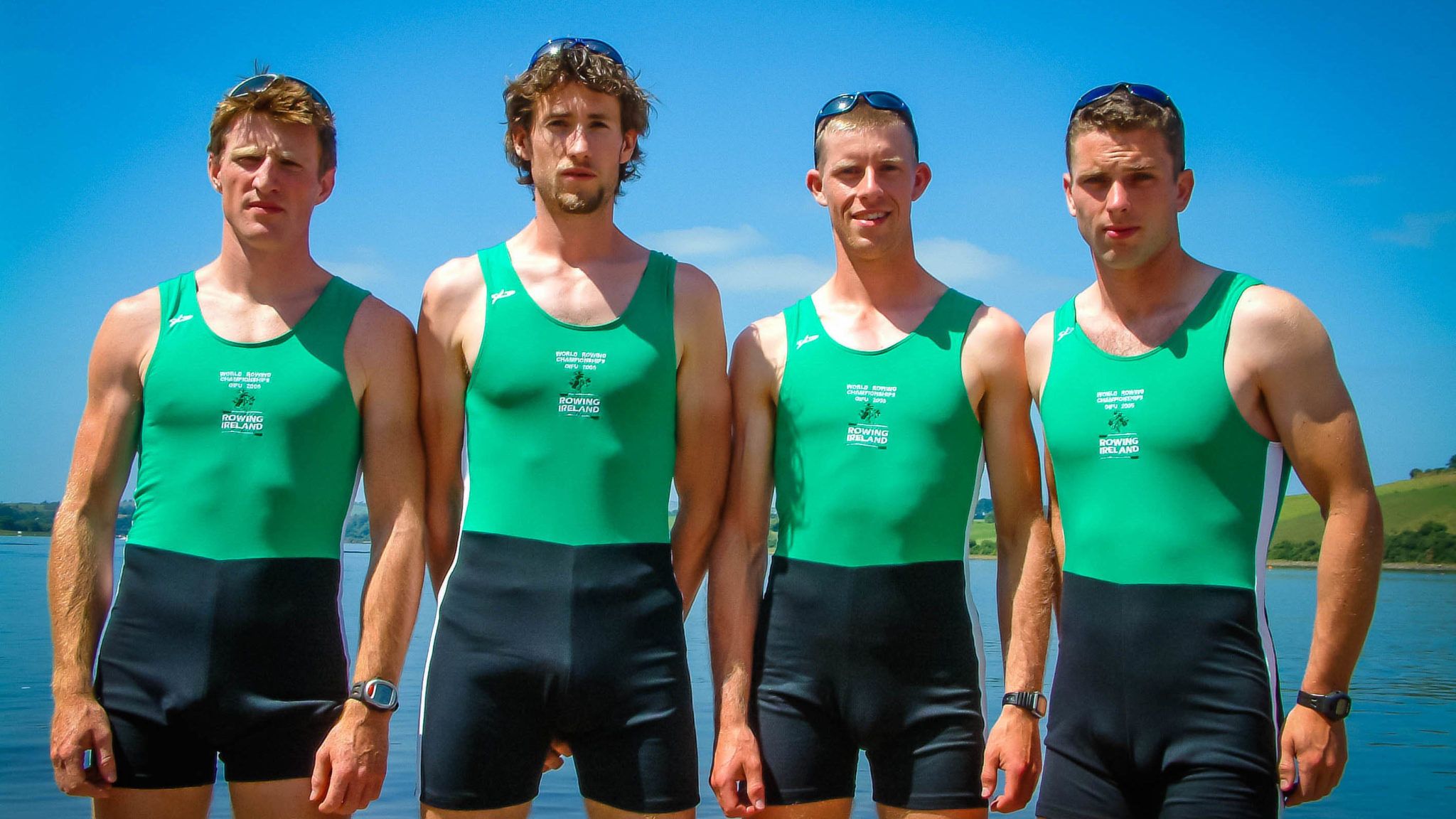 The Irish men's lightweight four of Timmy Harnedy, Eugene Coakley, Richard Archibald and Paul Griffin finished sixth together in the A final at the 2003 World Championships in Milan.
The Irish men's lightweight four of Timmy Harnedy, Eugene Coakley, Richard Archibald and Paul Griffin finished sixth together in the A final at the 2003 World Championships in Milan.(Photo: Mark Kelly)
***
Coakley didn’t look at Niall O’Toole’s return to the set-up in 2004 as a credible threat to the lightweight four. The Dubliner had won world gold in 1991 – but that was 13 years ago. O’Toole turned 34 in March ’04.
‘We never questioned that there would be any changes,’ Coakley says.
‘Tooler was brought out to Spain, I think in late January or early February. We didn’t really take any notice of him at the start but then he was being put out into fours and began to be integrated more into the group.’
The plan soon became obvious – it was going to be a shoot-out between O’Toole and Harnedy for the number three seat in the boat. That same scenario unfolded in 2003 before the Worlds in Milan and Harnedy emerged. This time, the Skibb man was ousted – but it’s how it happened that rankled Coakley and ultimately led to the demise of this Irish four. It was never the same after. Ever. The friendships that had existed never recovered. Everything changed with that one decision.
‘Of all the boats I have been in, this was the closest. We had done the U23s together, trained so hard together, we were very close and we knew everything about each other. Because we got on so well, the fact that Timmy and myself were from Skibb was irrelevant in the overall picture,’ Coakley says.
The plan was for O’Toole to race in the four at World Cup II in Munich, then Harnedy would get his chance at the next World Cup event in Lucerne and after this Nilsen would make his final decision. The four with O’Toole won silver in Munich, their first World Cup medal. Nilsen sat down with Harnedy in the food tent afterwards and told the Skibb man he was sticking with O’Toole. Harnedy never got the opportunity he was expecting.
Coakley wasn’t happy. He felt the Irish four stood a better chance of winning a medal with Harnedy in it. It wasn’t to do with friendships or the Skibbereen connection, it was because Coakley was convinced Harnedy was the best man for the job.
‘My thinking was that this could cost us an Olympic medal,’ he explains.
‘If Tooler was better than Timmy I would have gone with it, in the same way that Paul O’Donovan was happy to row with Fintan McCarthy because he was better than Gary last year.
‘At the highest level, you are in it for yourself and you will do whatever it takes to get the best result. You have to be selfish. There’s no room for emotion at the highest level of sport.
‘The cut was clinical, like when you see those bankers lose their job and they are escorted off the building by security.
‘I’ve never forgotten the injustice of what happened to Timmy but in a selfish kind of way I had to just park it and crack on with the new four that was going to the Olympics. But the tight unit that we had was broken.’
Losing Harnedy hurt Coakley more than the others. The youngest member was the conductor of this four and had this uncanny knack of pulling the best out of the other three so that they were stronger than the sum of their parts. But the decision was made and Harnedy had to get on with it, there was a first Olympic rowing medal to win for Ireland.
‘When Timmy came out of the boat, initially it still held its speed because the other three of us knew what to do but as time went on during the summer of ’04, our performances started to dip because we had lost the influence of Timmy and there was no leader in the boat. By the time we got to the Olympics our performance levels had dropped even more,’ he says.
The Irish lightweight four was limping towards Athens. The signs weren’t encouraging. The new combination was stuttering. At a pre-Olympics training camp in Zagreb, they struggled. On to Athens.
***
As a kid growing up in Skibbereen, Coakley never dreamt of becoming an Olympian. He remembers his club coach, Dominic Casey, breaking it down to its simplest form. Anyone can achieve it, Casey said, with hard work and talent. Coakley had both. He also had two arms and two legs, another observation by Casey who saw no reason why Skibb rowers couldn’t compete at the highest level.
Coakley was an unused sub at the 2000 Olympics in Sydney and had graduated to centre stage by 2004. Nielsen rated him too. For Something in the Water, the book on Skibbereen Rowing Club, the Norwegian spoke of Coakley as a ‘real talent’ with ‘the right mentality’. That’s high praise for a world-renowned coach. Classed as a ‘natural rower’, Coakley’s technique was – and, odds are, still is – excellent. What he did better than anyone else was not slow the boat down between strokes. His engine was built to last too; his endurance is legendary. He was the Duracell bunny of Irish rowing – but that wasn’t enough to spark the Irish four in Athens.
They finished second in their heat and then third in the A/B semi-final, scraping into the medal race with the slowest time of the six finalists. Even the Austrian crew that finished fourth in the other A/B semi-final and missed out on the final raced a faster time than the Irish four. The signs weren’t good.
‘The thing about rowing is that it’s really pretty predictable so barring a miracle the speed you come into the competition with is not going to change throughout the week. More often than not, the winners will win the heat, semi and final,’ Coakley explains.
‘It’s not like you can say on the morning of the race, “ah, let’s win this,” and you can do it because your speed is not going to change. Even if your heart would like to increase spend, it’s your body that determines if you have the physical ability. Of course mental strength is also essential but you would expect that anyone in the final has already overcome any mental inhibitions to prevent them performing.’
The day before the final, and with Irish hopes of a first Olympic rowing medal fading under the Athens sun, Nilsen made the decision to cut down the size of blades on the Irish oars. The thought process was that with the smaller surface area on the blade it would come through the water quicker. Coakley wasn’t happy and describes it as a get-rich-quick scheme doomed to failure. None of the crew spoke up, though. But Harnedy (in Athens as a sub but not involved with the four) would have – he’d have shouted stop and called the move for what it was: madness.
The men’s lightweight four A final was held on a roasting Sunday morning on August 22nd, 2004, at the rowing hub in Schinias, a 45-minute bus journey from the Olympic Village. It’s not a particularly memorable day for Coakley. The intent was there, so too was their desire and determination, but there was little in the bank to back up their enthusiasm.
Their race tactics were to the point: go as hard as they could from the start and see how they get on. Leave the water with no regrets, they agreed. Like all Greek Tragedies, though, there was no happy ending here.
‘There was the usual, “Ya, let’s pop one here today”, but the reality was much different,’ Coakley concedes.
‘We went off the blocks really hard and going through halfway we were still hanging on to third place, but then like the Greek marathon runner, Pheidippides, who died running from Marathon to Athens, we died in the second half and we limped home in sixth place.’
There’s a great picture of the Irish four slumped in the boat after the finish line. No words are needed. They were shattered, mentally and physically.
‘We gave it our best shot but we just were not good enough,’ he admits.
‘After we brought the boat in, we said a few words, the usual stuff that makes no difference, that we did all we could, bla bla bla. Of course we did all we could, but we didn’t lose the final that day, we lost it in the months beforehand.’
There was no inquest into the race afterwards. By now, Thor Nilsen wasn’t at the venue, he had told them before the race that he wouldn’t be around afterwards because he had a flight to catch. His work was done.
‘To be honest, after the race I had switched my attention to catching up with my mates who were over the other side of the lake, enjoying themselves since nine o’clock in the morning,’ Coakley says.
It was time to enjoy the Olympics. He gathered plenty of memories from the Athens Games. Living in the Olympic Village with 10,000 other athletes. The main dining hall that could hold 3,000 people and was open 24 hours. Having dinner one night beside Swiss tennis great Roger Federer and not knowing who he was until Richard Archibald nudged him. Watching the 800m final at the Olympic Stadium.
‘I’m so thankful that the rowing happens in week one of the Olympics as the poor marathon runners don’t get to enjoy the food on offer,’ he laughs.
‘In week one it was plain pasta and everything else that is sufficient to keep the engine running and then week two is just the complete opposite. The joy of coming home from a night out in week two and having a steak and chips at two o’clock in the morning always amuses me.’
Following Athens, that combination of Griffin, Archibald, O’Toole and Coakley never raced together again. In the months after, the original band got back together. Harnedy was back in the boat. But it wasn’t the same. German Harald Jahrling was their national coach now, replacing Nilsen, but something was different. The decision to replace Harnedy pre-Olympics upset the rhythm they had created.
‘When we came back together, the link had been broken. In 2005 it was more professional relationships rather than the friendships we had before Athens. It wasn’t the same as before,’ Coakley concedes.
‘In ’05 we came second and third in the World Cups, we were good enough to win gold at the World Championships but the French were a fast crew who raced out of the blocks.’
Still, the Irish four won a silver medal at the 2005 Worlds in Japan. That was the only time Coakley cried after a race, back in his hotel room.
‘I never did shed a tear as I don’t believe in any of that nonsense,’ he says.
‘I think in some way people who cry are just giving a public display that they are disappointed. Of course I was pissed off with our final result in Athens as we came last but crying about it was not going to change anything.
‘I only ever cried once and that was after winning silver at the 2005 Worlds. It was just a release of years of hard work and now I had a tangible something, a piece of metal which marked an achievement in world rowing, after so many years of practice.’
But he knows too he could also have got his hands on an Olympic medal….
 Timmy Harnedy and Eugene Coakley are two of the best rowers Skibbereen Rowing Club has ever produced.
Timmy Harnedy and Eugene Coakley are two of the best rowers Skibbereen Rowing Club has ever produced.(Photo: Mark Kelly)
***
‘Life goes on, we had our chance in Athens, we did the best we could with the crew we had and you can’t spend your life thinking about it, but I’m human too so of course occasionally I do think “it would have been great if we were the first Irish Olympic medallists with rowing”. There is no reason why we shouldn’t have been,’ Coakley, now 41, explains.
Like the O’Donovan brothers admit they find it hard to watch replays of their Olympic silver medal in Rio because they ‘lost the race’, it’s understandable too that Coakley has those what-if thoughts. These are elite sportspeople who train to win, not to come second in an Olympic final, or sixth. It’s why too that Coakley was more pissed off after winning silver at the 2005 World Championships than finishing sixth in the Olympic final; he knew the four in ’05 was good enough to win gold whereas the four in Athens weren’t good enough to place better.
And it’s also why Coakley wants to ask Thor Nilsen if he made a mistake replacing Harnedy.
‘I know how Thor could rationalise it, that Timmy had been overweight and that Tooler was a previous world champion. As a rowing coach myself, I understand now that coaches have to make a decision. Sometimes you get it right, sometimes you get it wrong. I’m not questioning Thor’s career, it’s been amazing, but at the end of the day we all make mistakes and I think he made a mistake here,’ Coakley says.
These days, 16 years on from Athens, he takes more pride in being an Olympian. He’s part of a privileged club. What got Coakley to the pinnacle of the sport is his mental strength and discipline, as well as his physical attributes. Little wonder he thinks about what might have been, just like the O’Donovans do when they look back on Rio.
‘We served our apprenticeship in 2003 and should have been ready to be on the podium in 2004 but, look, shit happens, no one died, life goes on,’ Coakley adds.
You get the feeling that he won’t get the answer to the question that he wants, but he’ll still ask it again. There’s a reason why he is a two-time Olympian.




